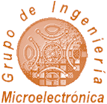
Mapa Web

Localización

Noticias

Info Santander

Gestión BD

|
| GIM>Investigación>Publicación |
| PUBLICACION |
| |
| Ficha completa |
| Título: | Mega-Modeling of complex, distributed, heterogeneous CPS systems |
| Tipo: | Articulo en revista internacional |
| Lugar: | Microprocessors and Microsystems (accepted) |
| Fecha: | 2020-08 |
| Autores: |
Eugenio Villar
Javier Merino
Héctor Posadas
R. Henia (Thales TRT)
L. Rioux (Thales TRT)
|
| Líneas: |
Diseño y verificación de sistemas embebidos HW/SW
|
| Proyectos: |
PLATINO - Plataforma HW/SW distribuida para el procesamiento inteligente ...
|
| ISBN: | 0141-9331 |
| Fichero: |
|
| Resumen: | Model-Driven Design (MDD) has proven to be a powerful technology to address the development of increasingly complex embedded systems. Beyond complexity itself, challenges come from the need to deal with parallelism and heterogeneity. System design must target different execution platforms with different OSs and HW resources, even bare-metal, support local and distributed systems, and integrate on top of these heterogeneous platforms multiple functional component coming from different sources (developed from scratch, legacy code and third-party code), with different behaviors operating under different models of computation and communication. Additionally, system optimization to improve performance, power consumption, cost, etc. requires analyzing huge lists of possible design solutions. Addressing these challenges require flexible design technologies able to support from a single-source model its architectural mapping to different computing resources, of different kind and in different platforms. Traditional MDD methods and tools typically rely on fixed elements, which makes difficult their integration under this variability. For example, it is unlikely to integrate in the same system legacy code with a third-party component. Usually some re-coding is required to enable such interconnection. This paper proposes a UML/MARTE system modeling methodology able to address the challenges mentioned above by improving flexibility and scalability. This approach is illustrated and demonstrated on a flight management system. The model is flexible enough to be adapted to different architectural solutions with a minimal effort by changing its underlying Model of Computation and Communication (MoCC). Being completely platform independent, from the same model it is possible to explore various solutions on different execution platforms. |
|
|








